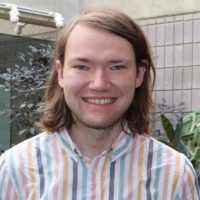
“Investigating expression of Chlamydomonas bicarbonate transporters LCIA and LCI1 in plant chloroplasts”
Project Summary:
The ability of photosynthetic organisms to fix carbon dioxide into organic carbon is crucial to life on Earth. Unfortunately, in C3 plants, which account for most land plants, the process is inefficient. Rubisco is the enzyme which catalyzes the conversion of carbon dioxide to organic carbon, but it catalyzes a wasteful side reaction with oxygen. Other photosynthetic organisms, such as cyanobacteria and photosynthetic algae, in part because they can concentrate carbon dioxide around Rubisco. They do this by importing inorganic carbon into the cell in the form of bicarbonate, which requires the use of bicarbonate transport proteins. These proteins are not present in any known land plants, so they must be imported into plant cells by transgenic expression. To do this, the genes for the proteins must be imported into the plant genome. Molecular cloning techniques, including restriction enzyme cloning and agrobacterium-mediated T-DNA insertion allowed for the creation of expression cassettes for two bicarbonate transporters, LCIA and LCI1, in Nicotiana benthamiana, tagged with YFP. Using these expression cassettes, the localization and expression levels of these proteins can be visualized through fluorescence microscopy.
My Experience:
Through the PGRP intern experience, I was exposed to new topics in plant research, and gained new skills. I was already planning to go to graduate school and pursue a career in science, but my experience in this internship helped to confirm that I would like to pursue that path. The seminars and other events put on by the program helped me gain new professional skills and allowed me to network with professors here at Cornell, while learning about different areas of research happening and helping me to understand what fields I would like to study in graduate school. In the future, I would like to go to graduate school to study the molecular biology of plant-pathogen interactions.
